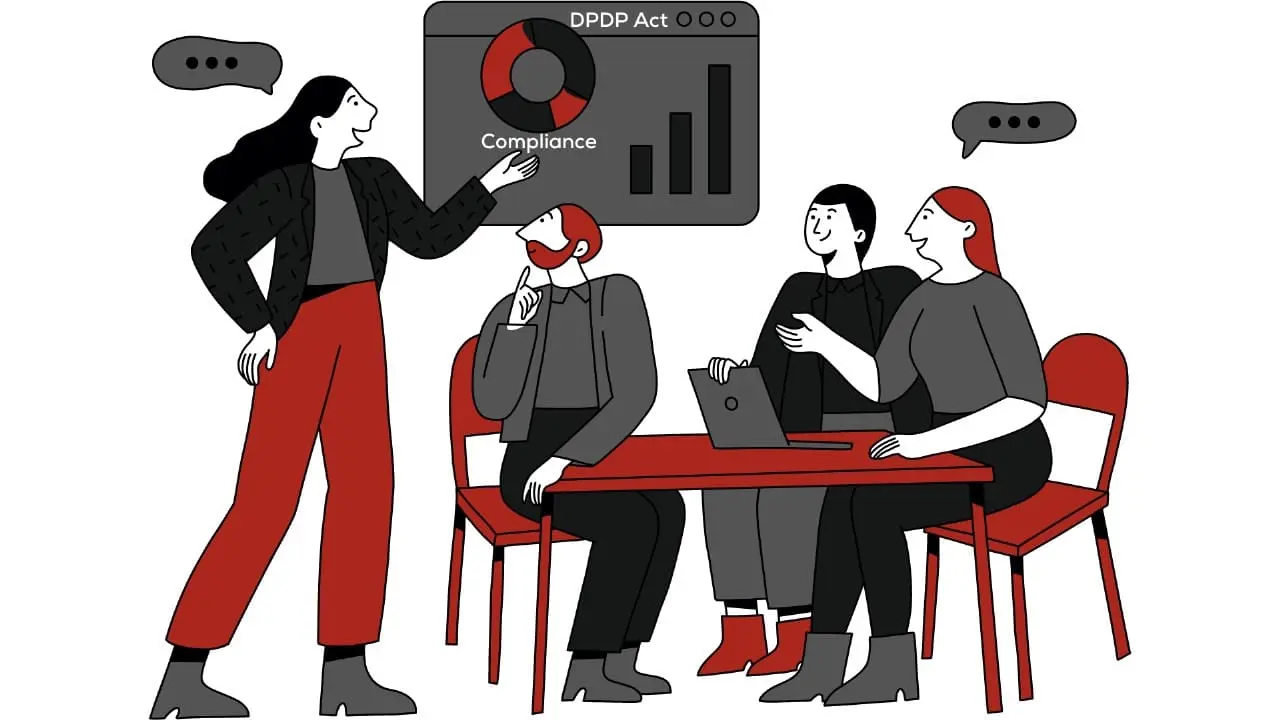In today's digital age, data privacy and cybersecurity have become paramount concerns for businesses worldwide. With the increasing volume of personal data being generated and processed, protecting this sensitive information from cyber threats is critical. In India, the implementation of the Personal Data Protection Act (PDPA) represents a significant step towards safeguarding individuals' privacy rights and imposing accountability on organizations handling personal data. In this article, we'll delve into the key aspects of the PDPA and what Indian companies need to know to ensure compliance and mitigate risks.
Current Cybersecurity Landscape:
- Increasing cyber threats: Rising incidents of data breaches and cyberattacks highlight the urgent need for robust data protection measures.
- Regulatory scrutiny: Regulators worldwide are imposing stricter regulations to safeguard personal data in response to growing cybersecurity concerns.
- Data privacy awareness: Consumers are becoming more aware of their rights regarding personal data privacy, leading to higher expectations from businesses.
- Global compliance standards: Companies are required to comply with international data protection regulations such as GDPR, highlighting the importance of data privacy on a global scale.
Relation of Personal Data & Cyber Threats:
- Personal data vulnerability: Cybercriminals target personal data for identity theft, financial fraud, and other malicious activities.
- Data breaches: Unauthorized access to personal data can result in significant financial losses, reputational damage, and legal consequences for companies.
- Phishing attacks: Cyber attackers exploit personal data to launch phishing attacks, tricking individuals into divulging sensitive information.
- Ransomware threats: Ransomware attacks can encrypt personal data, leading to data loss and financial extortion from affected businesses.
What is The Personal Data Protection Act:
- Legislative framework: The Personal Data Protection Act (PDPA) aims to regulate the processing and protection of personal data in India.
- Compliance requirements: PDPA mandates companies to implement measures for the lawful processing, storage, and protection of personal data.
- Data subject rights: PDPA grants individuals rights over their personal data, including access, rectification, and erasure.
- Data breach notification: Companies are required to report data breaches to the relevant authority and affected individuals as per PDPA guidelines.
Implications of India's Personal Data Protection Act for Companies:
- Compliance costs: Companies need to invest in data protection measures, training, and compliance programs to adhere to PDPA requirements.
- Operational changes: Implementation of data protection policies and procedures may require organizational restructuring and workflow adjustments.
- Legal implications: Non-compliance with PDPA can result in severe penalties, fines, and reputational damage for companies.
- Competitive advantage: Companies that prioritize data privacy and demonstrate compliance with PDPA can gain trust and loyalty from customers and stakeholders.
How it will impact Indian Businesses:
- Enhanced data security: PDPA implementation will improve data security practices and raise awareness about the importance of protecting personal data.
- Consumer trust: Compliance with PDPA will enhance consumer trust and confidence in Indian businesses, leading to stronger customer relationships.
- Global competitiveness: Adherence to international data protection standards will enhance the global competitiveness of Indian businesses.
- Innovation opportunities: PDPA compliance may spur innovation in data protection technologies and solutions, driving growth and competitiveness in the Indian market.
How PDPA will benefit Indian Businesses:
- Enhanced Consumer Trust: PDPA compliance will demonstrate a commitment to protecting consumers' privacy rights, fostering trust and confidence in businesses' handling of personal data.
- Competitive Advantage: Companies that prioritize data protection and comply with PDPA regulations can differentiate themselves in the market, gaining a competitive edge and attracting customers who prioritize privacy.
- Operational Efficiency: Implementing PDPA-compliant data management practices can streamline business operations, improve data quality and accuracy, and reduce the risk of data breaches and regulatory penalties.
- Innovation Opportunities: PDPA compliance requirements may spur innovation in data protection technologies and practices, leading to the development of new products and services that prioritize privacy and security.
- Global Market Access: Compliance with PDPA standards will enable Indian businesses to navigate international data protection regulations and expand their market reach by demonstrating alignment with global privacy standards.
What preparation businesses need to make for PDPA:
- Conduct Data Audit: Assess current data practices, identify personal data assets, and evaluate data flows within the organization to understand compliance gaps and risks.
- Develop Data Protection Policies: Establish comprehensive data protection policies and procedures that align with PDPA requirements, including data handling, consent management, breach response, and data subject rights.
- Implement Security Measures: Strengthen cybersecurity defenses, encrypt sensitive data, and implement access controls and monitoring mechanisms to protect personal data from unauthorized access and breaches.
- Train Employees: Provide training and awareness programs to educate employees about PDPA requirements, data privacy principles, and their responsibilities in safeguarding personal data.
- Update Contracts and Agreements: Review contracts with third-party vendors, service providers, and business partners to ensure compliance with PDPA requirements and incorporate data protection clauses and obligations.
- Establish Data Governance Framework: Implement a robust data governance framework to manage data lifecycle, ensure data quality and accuracy, and maintain compliance with PDPA regulations.
- Appoint Data Protection Officer (DPO): Designate a qualified individual or team to serve as the Data Protection Officer responsible for overseeing PDPA compliance efforts, monitoring regulatory developments, and addressing data privacy inquiries and complaints.
- Conduct Regular Audits and Assessments: Perform periodic audits and assessments of data processing activities, security controls, and compliance with PDPA requirements to identify and address any gaps or deficiencies.
- Prepare Incident Response Plan: Develop a comprehensive incident response plan outlining procedures for detecting, reporting, and responding to data breaches in accordance with PDPA requirements.
- Stay Informed: Stay abreast of updates and guidance from regulatory authorities regarding PDPA implementation, interpretation of regulations, and best practices for compliance to ensure ongoing alignment with regulatory requirements.
Challenges it may create for Indian Businesses:
- Compliance complexity: PDPA compliance may pose challenges for businesses due to the complex regulatory requirements and evolving nature of data protection laws.
- Resource constraints: Small and medium-sized enterprises (SMEs) may struggle with limited resources and expertise to implement robust data protection measures.
- Technological barriers: Legacy systems and outdated infrastructure may hinder the adoption of advanced data protection technologies required for PDPA compliance.
- Legal uncertainties: Ambiguities in PDPA regulations and interpretations may lead to legal disputes and compliance challenges for businesses operating in India.
Conclusion:
In conclusion, the Personal Data Protection Act represents a significant milestone in India's efforts to strengthen data privacy and cybersecurity governance. While the PDPA introduces new compliance obligations and challenges for Indian businesses, it also presents opportunities to enhance data protection practices, foster consumer trust, and drive innovation in the digital economy. By proactively embracing PDPA compliance and investing in robust data protection measures, Indian companies can navigate the evolving regulatory landscape and safeguard the privacy rights of individuals while unlocking the full potential of data-driven innovation.
Tags









